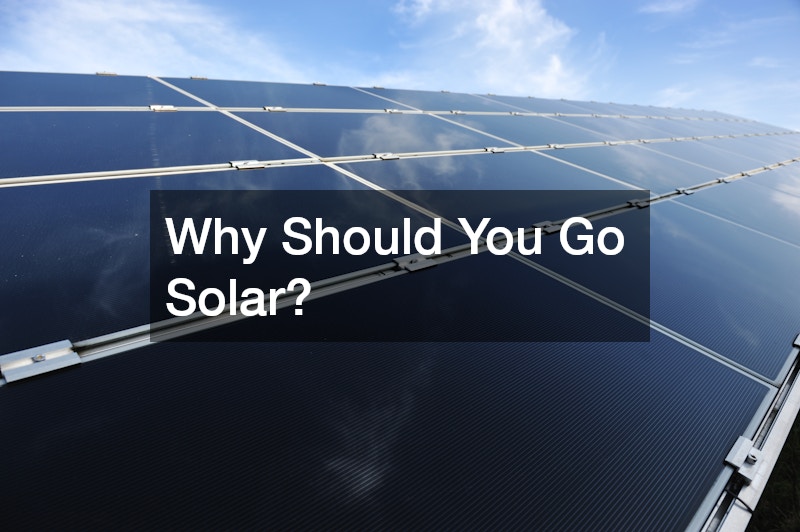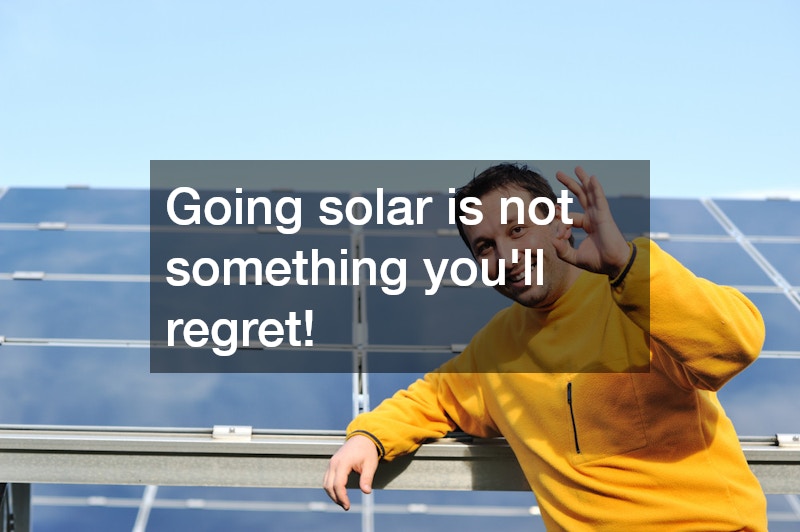
There’s a good reason why solar installations are rising in demand, and one of them is that they’re a green source of energy. This means that people who want to minimize their carbon footprint can benefit from making the switch to solar power.
If you’d like to learn the details, you simply need to look for something like “solar power vs fossil fuels” and you’ll see why solar power reigns supreme. Remember that you also need to find knowledgeable professionals who will guide you and do the proper solar installation so that you benefit fully. This is not a DIY task you should attempt!
To learn even more about this sustainable energy source, you can look online for “How is solar energy used in daily life?” You may also want to do a comparison of the various solar companies so that you pick the best. Search for the various companies that you may have heard about to see what people are saying about their services.
When you find one that you feel you can work with, you should ask for a quote so that you have a good idea of how much you need to set aside for the project from start to finish. Going solar is not something you’ll regret!

The use of solar panels is becoming increasingly popular as solar energy becomes better explored and understood. Up until now, the advantages of solar panels have stayed solely within the commercial or corporate side of the world because of how expensive the whole system was. Now, however, residential solar systems are becoming more readily available and affordable. You may wonder what the benefits of solar systems are for you anyway. Well, here are just a few ways that having solar panels on your home would help you out.
- Save Money
By adding solar panels to your home, you can save a lot of money on your power bill. Depending on where you are located, you will likely save more than $100 per month. The typical length of a solar panel warranty is 20 years so in less time than that you will save around $30,000. In some states, where power is more expensive, you’ll be able to save even more than that. You may think that starting solar power may be expensive but that doesn’t have to be the case. There are a lot of programs available now to help homeowners go solar with only a little money down. In some cases you could qualify for no money down. Financing is available for those homeowners who do not qualify for no money down. You may think that defeats the purpose of monthly savings, but you will pay less for your panels than you would for regular electricity. - Increase Home Value
Having lower electricity costs is extremely attractive to most home buyers. So, if you set up your house with solar power, it will increase the home’s value on the market. This works the same way as homes that have low property taxes or are in good school districts. Having an efficient energy rating will boost the attractiveness of your home, considerably. A recent study showed that homes with solar panels actually were selling 20% faster than those without and for 17% more money. On average, a home will sell for $17,000 more when there are solar panels installed. - Good Incentives
If you get a residential solar system, you will get about 30% of the system costs back when you file taxes. So, for example, if you have a system that is worth $25,000, you would save $7,500. This incentives may not last forever so you might as well take advantage while you can. There are many local incentives as well that may apply to you, depending on where you live. Most places will offer free solar guidance if you are considering installing a residential solar system into your home. - Guaranteed Performance
Most residential solar systems come with a 20 year warranty, sometimes 25. However, even after the 25 year mark, the systems are still guaranteed 80% performance. The actual lifespan of solar panels is usually even longer than that. Most panels will continue to generate a lot of electricity for 30 or even 40 years. - Environmentally Friendly
This is the main reason that people go solar. While having solar panels is good financially, it’s also good environmentally. The annual carbon dioxide emissions percentage in America is second in the world. First place goes to China. By replacing utility power with solar panels, you will initiate clean electricity which will reduce your carbon footprint. Think about it this way; on average, a residential solar system only gives off about 100,000 pounds of carbon dioxide over a span of 20 years. That’s about the same as driving a car for 100,000 miles which we do a lot sooner than 20 years! - Easier Shopping
Trying to find a solar company that was affordable used to be very difficult and complicated. However, now, there are so many different solar companies in the United States that it probably wouldn’t take you more than a couple of hours online to find the best company for you. You can even get a free solar consultation and have someone sort through your options for you. This will also help you to see how much you could save monthly as well as overall.
Going solar is always a good idea. There are hardly any downsides to it; that’s what you’ll find out when you start looking into it.
